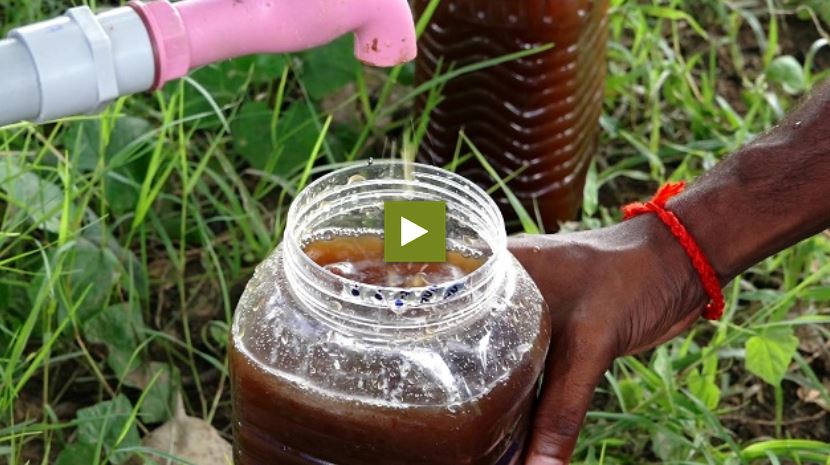»Vermi-wash: an organic tonic for crops«
Soil structure and health can be managed and maintained by use proper environmental friendly fertilizers for sustainable crop production.
As ecological agriculture sustains food production for now and future, healthy well nourished soils are the basis for growing healthy crops. Continuous crop cultivation in same soils depletes fertility and absence of micro nutrients disable plants to absorb mutual nutrients such as NPK.
Fertilizer processing
Initially, vermi-wash is a final product of vermi-compost which is liquid collected when water passes through vermi-compost. It is rich in plant growth hormones, micro nutrients and macro nutrients and it is used on vegetables and fruit trees.
Similarly, make vermi-wash by putting on a tap on the plastic bottle to collect the product and use either cotton cloth or piece of mosquito net as filter to prevent blocking. Place bottle in shade and fill 10-15 cm of bottle with dry leaves, add 10-10 cm of straw and place 5-10 kg of decomposed cow dung.
Add 2 kg of earthworms to the bottle and don’t compact the material followed by the addition of 2-4 liters of water gently to the bottle and check moisture levels. Close bottle with cloth for worms to be in darkness and to prevent ants and after 10 days collection of vermi-wash will start as 1-2 liters are collected daily.
Furthermore, each time you collect vermi wash, add 2-4 L of water to bottle and collect up to 3 months. Dilute vermi-wash with water before spraying on plants and never mix chemicals with vermi-wash. Mix 1 liter of vermi-wash with 1 liter of cow urine and 10L of water to apply on plant during growth and flowering stages specifically in morning or late evening. Soak roots of seedlings in vermi-wash before transplanting and spray soils before planting.
Finally, after 3 months start with fresh material for vermi-wash. Remove residues and worms from bottles and spread onto sheet and separate earthworms them



















